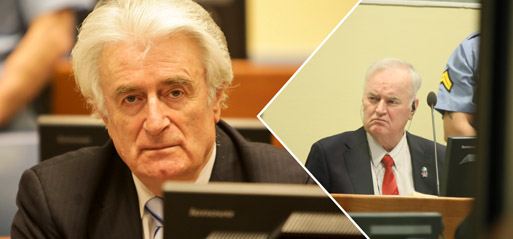
Nadine Osman
Bosnia and Herzegovina’s constitutional court suspended a portion of the curriculum introduced in primary schools within the country’s Serb-dominated region that presented convicted Serb war criminals from the 1992-95 war as heroes.
Starting in September, the education ministry of the Serb Republic (Republika Srpska), one of Bosnia’s two autonomous regions, implemented a module on the Bosnian War and its causes from the Serb perspective.
This curriculum depicted Bosnian Serb political leader Radovan Karadžić and military leader Ratko Mladić—both sentenced to life imprisonment for war crimes and genocide by the Hague-based International Criminal Tribunal for the former Yugoslavia—as historical figures who facilitated the creation of the Serb Republic. Karadžić was arrested in 2008 and sentenced to life in 2021, while Mladić was arrested in 2011 and received a life sentence the same year for their roles in the Srebrenica massacre, which resulted in the deaths of over 8,000 Muslim Bosniak men and boys, as well as other wartime atrocities.
The devastating conflict in Bosnia, which claimed over 100,000 lives and displaced around two million people, ended with the US-sponsored Dayton peace agreement. This agreement divided the country into a Serb Republic dominated by Orthodox Serbs and a Federation primarily composed of Bosniaks and Catholic Croats.
During its plenary session on October 11, the court decided to suspend the section of the curriculum that addressed the war and the creation of the Serb entity, effective immediately. This decision came in response to a request filed by 13 members of the national parliament. The court emphasised that implementing this part of the curriculum risked exacerbating segregation and divisions among students of various ethnic backgrounds.
However, in practice, the multi-ethnic court has limited powers of enforcement. The Serb Republic has withdrawn its Serb judges in protest of the continued presence of foreign judges, who serve in the court under the peace deal. Serb leaders have expressed their disregard for the court’s decisions, often ignoring them. Bosnian Serb leader Milorad Dodik, who faces US and UK sanctions for violating the provisions of the Dayton peace accords, has repeatedly advocated for the region’s secession from Bosnia and its unification with Serbia.
Photo: Radovan Karadžić, former President of Republika Srpska, and Ratko Mladić, former commander of the Bosnian Serb Army, during their ICTY trials (Credit: UN International Criminal Tribunal/CC).